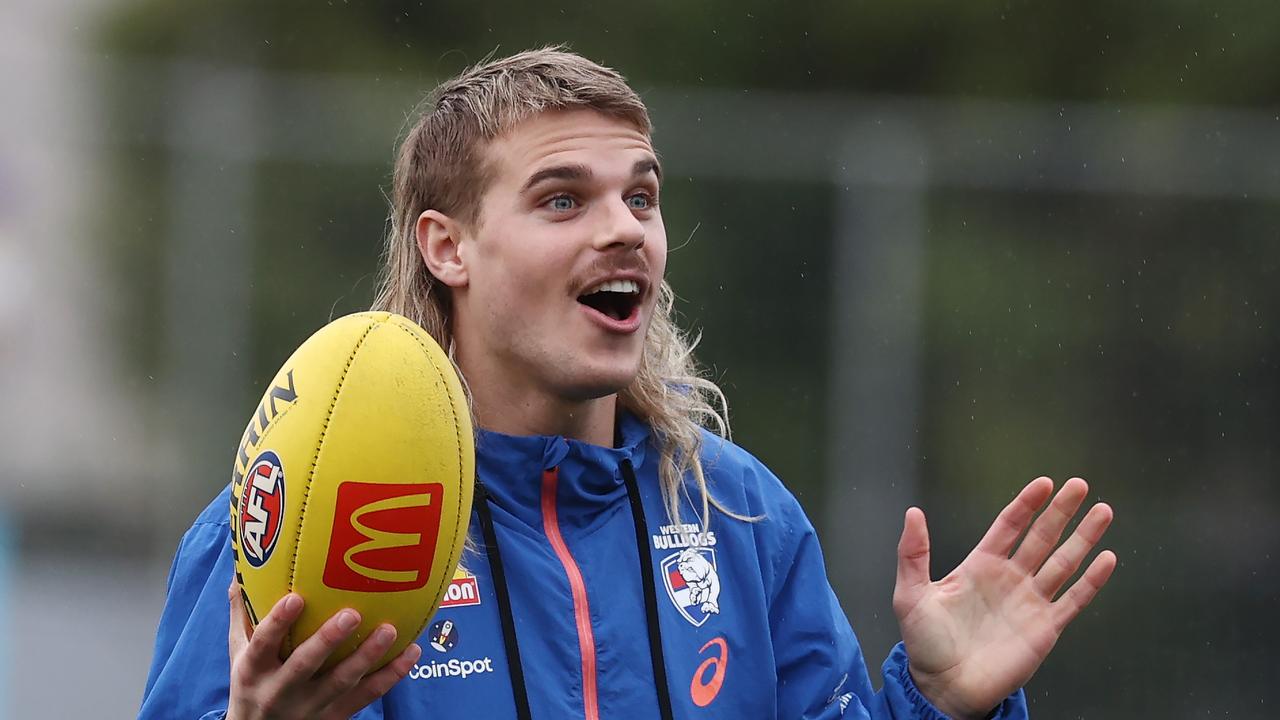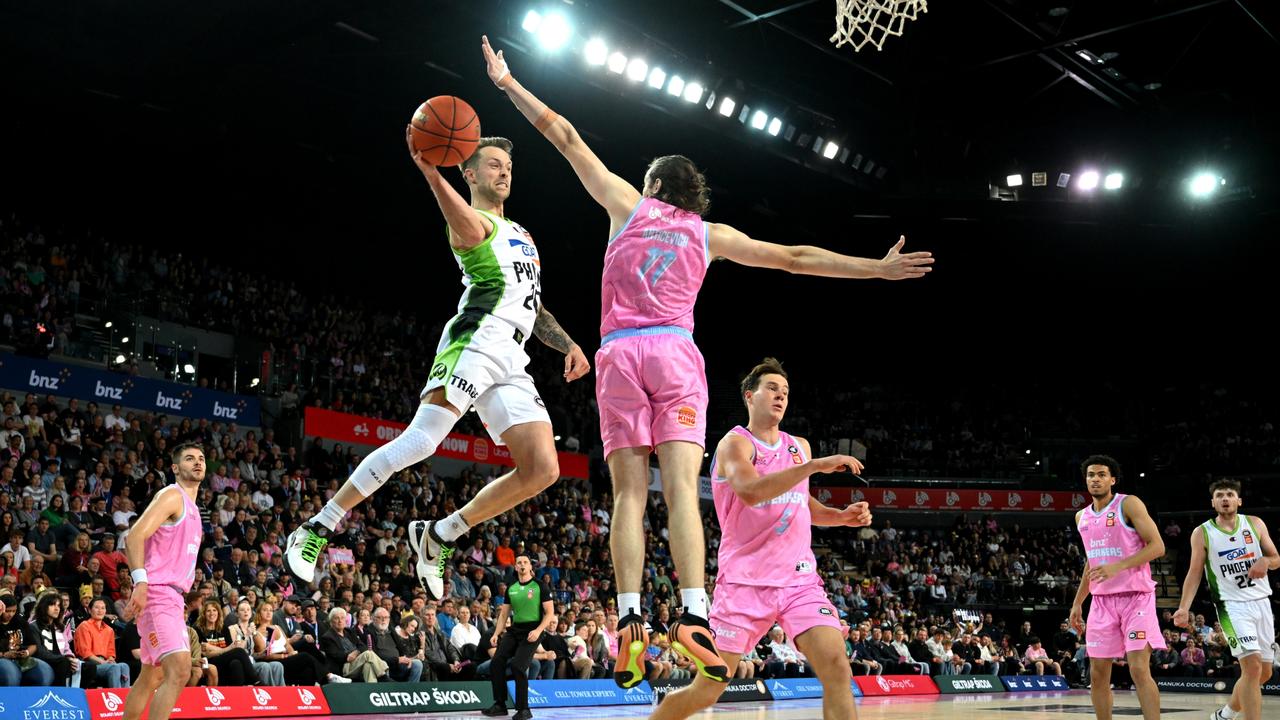Six KFC SuperCoach experts reveal the lessons they learned this season
Another season of KFC SuperCoach is almost over. Six experts reveal the lessons they learned and how they plan to improve next year.
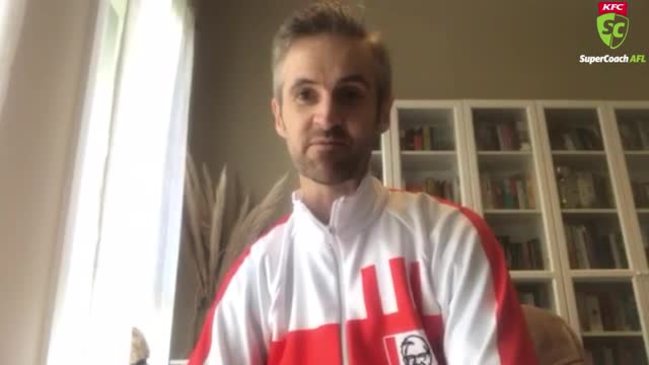
SuperCoach
Don't miss out on the headlines from SuperCoach. Followed categories will be added to My News.
Every KFC SuperCoach seasons throws up challenges.
Like most of Australia, KFC SuperCoaches thought 2021 was going to be easier to navigate than 2020.
Sadly, on both fronts, that hasn't been the case for many.
Now — in KFC SuperCoach at least — it’s about the lessons you take from another tough season.
Do you accept defeat, take up gardening or spend next winter learning to knit?
Not a chance.
You reload, bigger and much better, armed with the mistakes you made in 2021 as ammunition for 2022.
We’ve surveyed six KFC SuperCoach experts to detail the lessons they learned this year and help you avoid the same pitfalls.
The race to the 2021 Toyota AFL Finals Series is on and every match matters. Watch Live & Ad-Break Free on Kayo. New to Kayo? Try 14-days free >
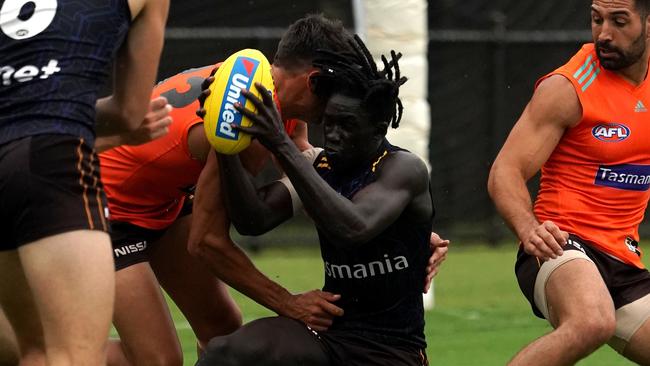
Tim Michell
1. Don’t give up on any players too early
Patience is truly a KFC SuperCoach virtue and it often pays not to get sucked in to your frustration and punt players based on form or role. Both of these can change quickly. Tom Highmore has averaged more than 80 since I traded him to Jai Newcombe in Round 13. I also traded James Jordon during the byes when he continued to score 80s and 90s. One of my worst trades this year was jumping on Changkuoth Jiath for three 60s, trading him to Steven May and then watching Jiath score 90s most weeks. You just need to ride out poor form sometimes and look for even the most remote signs a rookie is worth holding onto. How many of us traded Highmore only for him to score 110 the next week?
2. Don’t fill any position too early
I missed out on a bargain-priced Lachie Whitfield because my defence and midfield (for Rory Laird swing) were already full premium by about Round 14. I would much rather have had Whitfield than some of the premiums I settled for. Map out what your ideal finishing team looks like and leave spots open, even if it means playing rookies until your desired premium bottoms out in price or returns from injury. Whitfield is a player I love watching due to his work ethic and it hasn’t been enjoyable having to barrack against him.

3. Don’t pay overs for premiums regardless of who they are
This won’t apply every year, but has certainly been the case in 2021. Has Jake Lloyd justified paying $650k from the start of the year? No. You could have got away with paying $100k-$150k less for another defensive premium and redeploying that cash elsewhere. Sometimes it’s better to “settle” for a fallen premium instead of paying up for a top-priced option, too. I paid $607k for Dayne Zorko and burned two trades to get him when I could have grabbed Rowan Marshall for under $450k. Ditto Brodie Grundy, who I brought back in for close to top dollar when I could have run with Marshall at R2 and ended up with a better result. I paid up for Zorko after missing out all the way back in Round 8, a decision which has cost me almost 1000 spots and a top-1000 finish.
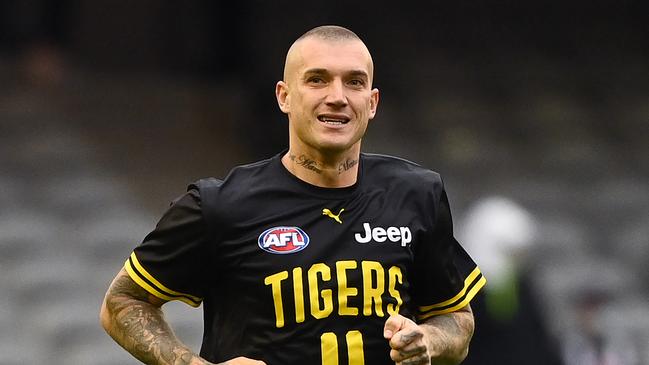
4. Either start Dusty or don’t bother until after the byes
I got sucked in, again. I swore I wouldn’t start Martin, stuck to that and then traded him in after his annual best on ground against Carlton — a score of 158. I had to dump Patrick Dangerfield so it seemed the right move, but Martin scored only four more tons for the year and got as low as $433k. History tells us he is very likely to be available for about $450k at some point of the season, and that’s when you pounce. You just have to be prepared to play catch up from Round 1 when he inevitably torches Carlton.
Al Paton
1. Leave trades/player moves to the last possible moment
Completing your trades before the start of the round can make the weekend less stressful, but it leaves you exposed to last-minute curve balls. Entering Round 12 I was committed to Ned Reeves, but held off until the following week just to be safe. My extreme caution paid off when he was a shock omission after rolling his ankle in the final training run of the week. I’m prepared to go even closer to the wire, not trading a player in until a minute or two before their game starts just in case they hurt themselves in the warm-up (it has happened!) — or they are yanked at the last second due to an inadvertent visit to a Covid exposure site (hopefully that’s one we won’t have to worry about next season). It requires close attention to the order of games, being on top of any late team news, and a stable internet connection — but if the players you are trading in and out don’t play until later in the round, it can really pay to hold off pulling the trigger.

2. Nurture your DPPs
Picking dual-position players in your starting squad is KFC SuperCoach 101 and I had plenty, including late DEF/MID inclusion Harry Sharp after he was a surprise Round 1 debutant. But it certainly pays to manage your DPPs across the season, especially over the byes when moving players around to cover holes and manufacture trades. I learned this the hard way — when the byes finished some of my best DPPs were gone and the ones I had left were almost strategically placed where they couldn’t help me — Sharp and Rory Laird (both DEF/MID) have both been in my defence for the final nine rounds while James Madden and Keiren Briggs (both DEF-FWD) have been sitting next to each other on my forward bench for the same period. I had to cop one on-field zero when Lachie Whitfield missed a week through concussion and I couldn’t move either back to defence, and this week I could be eating another doughnut if Jack Ziebell is too sore to play. I have three good back-ups on my bench but unfortunately they are all in the midfield with no way of moving them to other positions.
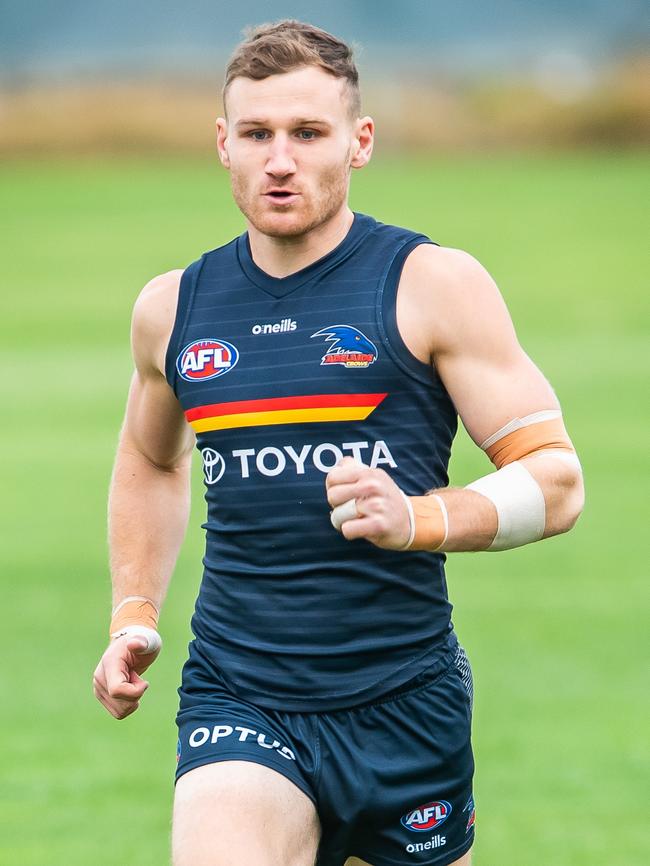
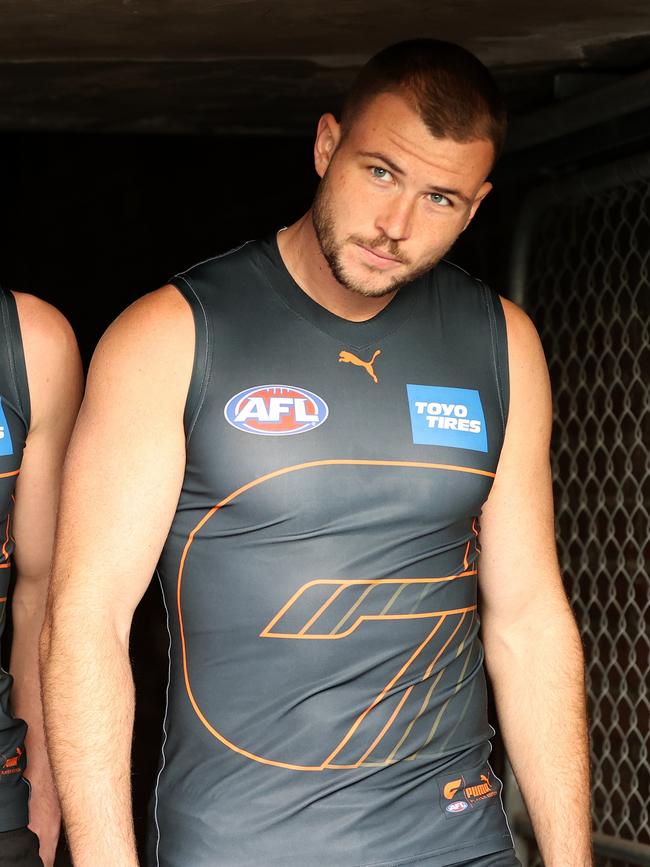
3. Every year is different
Take all the other lessons here with a grain of salt! At the start of this year I was convinced the biggest lesson from 2020 was to just start the key pillars in each line — Jake Lloyd, Lachie Neale and Co — regardless of the cost. We know how well that worked out. In hindsight it’s obvious we were overpaying for these guys, but of course it’s very hard to know that before the fact. Some years a “set and forget” ruck strategy is the way to go, next year there might be two huge bargains that change your entire approach to the season. Be flexible, don’t lock yourself into a particular strategy and roll with the punches.
... And one more...
Don’t sweat the mistakes too much — we all make them — remember the smart calls you made (I know I wasn’t the only one who traded in Tom Mitchell or Jack Steele at a bargain price and watched them dominate) and try to enjoy the ride!
Dan Batten
1. Never pick a rookie the week before their price rise
This one comes with immense irony – and not just because I spent half the year writing about rookies.
As my colleagues have pointed out, this was the exact advice I gave myself after the 2020 KFC SuperCoach season.
The worst of these cheapie calls came in Round 4 after Hayden Young’s injury, when I was tempted by the allure of $210k Chris Burgess and his possible ruck minutes (allowing me to get an overpriced Jayden Short the next week) over an up-and-coming Giant by the name of Isaac Cumming.
Needless to say, it wasn’t the last time I jumped the gun on a rookie after a promising first-game score.
Just three weeks later, Martin Frederick served a purpose in his second game with a score of 74 after his impressive 88 on debut.
From there, Frederick has managed six games – four of those coming on as the medical substitute – and averaged 28 points, remaining dormant on my defensive bench.
Perhaps it’s fitting that my final trade of the year was used to move on Tom Highmore for James Peatling after his 97-point debut.
We all know what happened next. Highmore went on to post a 93 that week, while Peatling managed a mere 34.
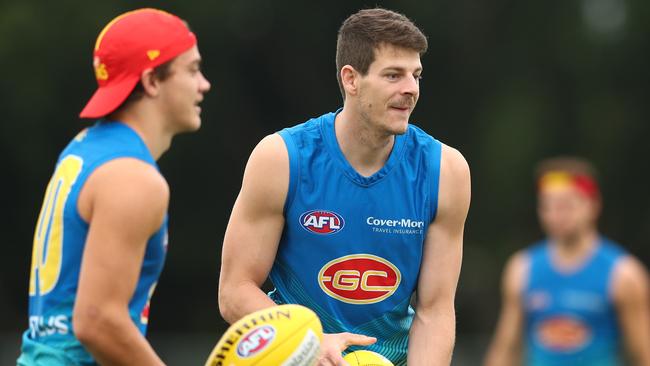
2. Start uber-premium, non-injury affected midfielders
It’s easy to see why my team has crumbled in the back half of the season when I compare my midfield to my peers.
I have only had a full “premium” midfield for the last two weeks of the season, and that’s including Tim Taranto (average of 97.6) and Patrick Cripps (84.9!).
The problem wasn’t necessarily holding those premiums too long, instead it was the sketchy midfield I started with in the first place.
While I had Rory Laird as a swing man, it was an engine room severely lacking in rolled gold options – Lachie Neale, Nat Fyfe, Patrick Cripps, Matt Rowell, Tim Taranto… As Tim Michell kindly put it in our group chat: yuck.
Few predicted how severe Neale’s fall from grace would be, but the signs were there that he was injury-affected, while the risk of Fyfe wasn’t worth taking.
I used my Patrick Dangerfield-Matt Rowell trades to bring in Jack Macrae in Round 2, but it meant settling for Hunter Clark in defence — another serious blunder.
The midfield is where the damage is done in KFC SuperCoach and packing my team with five uber-premium midfielders will be my No.1 priority next year.

3. Don’t get spooked by the byes
I had been on the receiving end of Jack Steele-inflicted pain the previous two seasons, picking him as a point-of-difference play in 2019 (the year before his breakout) and avoiding him in 2020, as I feared making the same mistake twice.
Overlooking the SuperCoach stud at a mouth-watering $560,000 proved to be just as costly — a direct result of being too preoccupied with the Round 14 bye, when I was struggling to get 15 players, let alone 18.
Steele has more than made up the difference of missing that one extra week, averaging a whopping 137.8 points.
Realising my bye predicament at about Round 7, I used too many trades trying to fix this, avoiding some high-quality options in the process.
The planning blew up in my face when Richmond’s bye was moved from Round 13 to 14.
Weighing up the long-term impacts of each trade, rather than the one bye you might be struggling in, is the best strategy for sustained success.
4. Double check when games start!
It looks like rookie advice, but it happens to the best – or the worst — of us.
I was caught out too many times this year missing loopholes, captains and even forgetting to trade out players due to leaving it too late.
It might seem over the top, but reminders and alarms do help.
@nacheers (former round winner and three-time top-1000 finisher)
1.Trades are so valuable.
We always knew this, but this season has shown in the current climate that this is even more of a crucial thing. I found out the hard way this season and have been tradeless for the last few weeks. Having one up your sleeve in the last few rounds can be the difference between winning and losing a match-up.
2. You can have as many Bulldogs as you want
Keeping byes in mind, of course. In pre-season we discussed the likelihood that having Bontempelli, Dunkley, Macrae and Daniel would be dangerous as they would steal points off each other. This was so far from the case it wasn’t funny. Just pick the big guns, as long as it fits your byes.
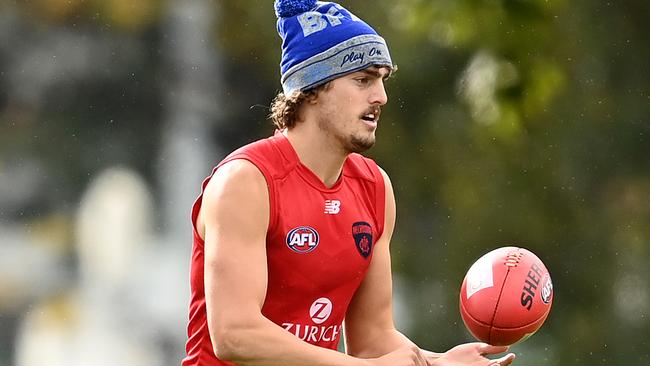
3. Gawndy may no longer be a thing
Luke Jackson has taken a lot of CBAs (centre bounce attendances) and Max Gawn has also spending a bit more time forward due to Jake Lever and Steven May dominating in defence and picking up most of the intercept points. At the same time, Sean Darcy has emerged as a SuperCoach beast and might even be the No.1 ruck next year.
@Cheezo_DRSC (Doctor SuperCoach podcaster, ranked #8 overall)
1. The eye-test is everything
So much of our time discussing KFC SuperCoach boils down to hyperbole. Very few tips and tricks for this game can beat the old-fashioned “eye-test” — that is, dedicating time to watching games you ordinarily wouldn’t in order to evaluate a player. You’ll pick up more than what the numbers tell you. This was great for assisting me to gain a “feel” for a rookie’s job security, role or scoring potential, and I’ll watch more games next year because of it.
2. Good decisions can have bad outcomes
The outcome of a decision made during the course of the KFC SuperCoach season tells you very little about if you made the “right” or “wrong” choice. Known as “results-oriented thinking”, this logical fallacy blinds SuperCoach players to their deficiencies as they don’t accurately assess the underlying logic supporting their trade or captaincy choices. Focusing on the logic and not the results helped with my “sleep at night factor” and I genuinely feel less stressed playing SuperCoach because regardless of the outcome I’m comfortable I’m making positive decisions.
Lunch is on @Supercoach today!@tim_michell 100% next year do fridge magnets that say “my other fridge is Sean Darcy†🤣🤣#SuperCoachpic.twitter.com/A16u8utRyh
— Cheezo (@Cheezo_DRSC) August 3, 2021
3. Stick to the KISS principle.
Rule #1: keep it simple, stupid. Rule #2: refer to Rule #1. There are more points lost through sheer stupidity than through bad luck in each and every KFC SuperCoach season. Complicated loopholes and vice-captaincy strategies can quickly go south if you haven’t had the time to evaluate all possible outcomes. Will you have time to switch your loophole if you’re in charge of the family barbecue? With the ever-changing landscape of the AFL fixture, my biggest lesson learned is to keep it simple. If it seems too complicated, then it probably is.
@Adrian9Johnson6 (KFC SuperCoach jury, ranked #637 overall)
1. Trades are undervalued
It is preached every season, but arguably the best piece of SuperCoach advice is continually ignored: don’t waste trades.
Let’s not forget we all have received an additional two trades in 2021 but the majority of coaches have already run out, with more carnage to come in the ultimate round, probably.
In the moment, sidewards trades and knee-jerk reactions always seem logical, i.e., paying top dollar for Jayden Short, jumping on the Jack Bowes bandwagon or trading Brodie Grundy throughout the byes. Arguably, none of the most popular aforementioned sideways trades was worth it, especially as the trades could have been far better utilised in latter stages of the season to prevent doughnuts (think Steven May, Tom Stewart, Jake Lloyd and Toby Greene).

2. Injury prone players are underpriced for good reason
At the beginning of the season, I was one of the biggest advocates for avoiding GWS midfielder Josh Kelly due to his injury history. I stuck true to my word… until Round 13, and I quickly realised why he is fraught with apprehension.
Isaac Heeney, Toby Greene, Nat Fyfe, Lachie Whitfield, Josh Dunkley, Adam Treloar and Rohan Marshall unfortunately all lived up to their reputations by sustaining injuries throughout the season and subsequently ignited shared angst among their respective SuperCoach owners.
However, it must be said that even favouring players whose bodies were so-called temples — think Dustin Martin, Lloyd and Stewart – have succumbed to injuries.

3. Jump on hype players before it’s too late
There are decisions during the year which can define a SuperCoach season. Mine was trading in Steele Sidebottom over Dayne Zorko in Round 8, but that’s a sad story for another time.
2021 has been a season which has lacked the abundance of forward premiums we’re used to, allowing coaches to take more risks. Coaches who proactively jumped on value forward line bandwagons were rewarded handsomely; Taylor Walker (Round 2), Bailey Dale (Round 5) Nick Hind (Round 8), Aaron Hall (Round 9) and Jordan de Goey (Round 14). They were calculated risks without much downside. Unfortunately, I only capitalised on one of them.
More Coverage
Originally published as Six KFC SuperCoach experts reveal the lessons they learned this season



